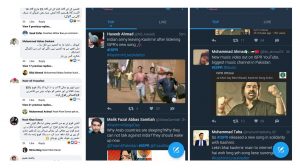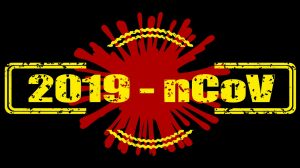Reporting the news serves democracy by informing citizens. But it risks harming privacy. Let’s review key laws balancing press freedoms with ethical obligations.
Constitutional Protections
The First Amendment guarantees freedoms of speech and the press in America. It allows journalists to publish information without government censorship or restraint beforehand (prior restraint). Courts tolerate some after-the-fact consequences for controversial speech that causes harm. But media protections aim to enable a vigorous, transparent public debate.
Truthful Reporting
Supreme Court decisions established that knowingly printing false information is not protected speech. However, innocent mistakes with reasonable research and anonymous source corroboration may have legal cover. Context matters most.
Defamation Dangers
Citizens have recourse against reputational attacks and falsehoods that damage livelihoods or psyches. Stories must steer clear of:
Libel – publishing intentional written falsehoods. Slander – making damaging verbal false statements.
Defenses include truth-telling, eyewitnesses, public figure status and the subject’s consent. Being found guilty risks penalties like lost lawsuits or firings.
Invasions of Privacy
The law recognizes four main kinds of intrusive coverage to avoid:
- Intrusion – aggressive newsgathering like trespassing, harassment or secretly recording private conversations.
- Appropriation – using someone’s name, likeness or identity without their consent for stories.
- Public disclosure – revealing private facts that are non-newsworthy.
- False light – portraying someone in a misleading, offensive way
Confidential Sources
Journalists promise anonymity to whistleblowers or crime witnesses fearing retribution. Courts typically respect these agreements. But they may compel identifying leakers in grave national security cases.
Access Restrictions
Public places and meetings guarantee press entry. But venues can set impartial rules like barring disruptions. Newsgathering rights diminish further entering private properties without permission
Juvenile Confidentiality
Special privacy laws protect minors under 18 in trouble. Police incident details naming them remain confidential. Some states let young offenders petition later to seal now-adult records.
Fair Use Doctrine
Copyright law says showing short protected media clips for news analysis qualifies as “fair use” without needing licenses. But context shapes specific judgments.
Subpoena Shield Laws
Special privacy laws protect minors under 18 in trouble. Police incident details naming them remain confidential. Some states let young offenders petition later to seal now-adult records.
Fair Use Doctrine
Copyright law says showing short protected media clips for news analysis qualifies as “fair use” without needing licenses. But context shapes specific judgments.
Subpoena Shield Laws
Many states offer reporters some protection against revealing notes, images or sources in court. But they define conditions differently. Federal shield law proposals have failed.
Plagiarism and Fabrication
Passing off others’ work as your own violates ethics policies at credible outlets. Making up sources, quotes or details also risks firing in disgrace.
Risk and Responsibility
Robust press rights enable tackling corruption, violence and injustice. But careless reporting ruins lives. Seasoned journalists balance public enlightenment with compassion through thoughtful questions like:
Does this story serve the greater good? Have I verified details responsibly? Am I treating subjects fairly and minimizing harm? What information could jeopardize safety or dignity without advancing understanding much?
Getting answers before publishing separates principled reporting from exploitation.
Evolving Technology
Many regulations predate digital media. Legislators continue wrestling how to update laws addressing issues like:
Internet defamation reaching global audiences instantly Private photos shared without consent Hidden cameras and facial recognition enabling surveillance Online harassment and hacking Youth privacy amid oversharing cultures Election integrity with viral misinformation
Press Freedom Challenges
An informed citizenry depends on journalists having latitude to monitor power, convey truth, question authority, satirize society, share painful histories, and highlight injustice without fear of retaliation.
But press rights decline worldwide through:
Surveillance used to expose confidential sources and chilling whistleblowers Espionage laws criminalizing handling state secrets Authoritarian crackdowns on dissent and independent journalism Monopolies consolidating media ownership Harassment of correspondents, especially women/minorities Spread of misinformation undermining consensus reality
Democracy suffers when news gathering meets resistance.
Conclusion
Reporting that speaks truth to power represents a democraticideal. But spreading falsehoods, invading privacy unnecessarily, or sensationalizing misery for profits violates public trust in media. Savvy journalists use ethical discretion, respecting privacy judiciously while elevating understanding. They clarify context around what regulations intend balancing accountability with liberties. Laws uphold freedoms enabling watchdogs. But rights entail responsibilities valuing compassion too. Society flourishes when diligent reporting and human dignity align.
Frequently Asked Questions
Q: Can journalists report anything legally?
A: No. Alongside vital press rights come ethical obligations. Laws prohibit spreading lies, illegally invading privacy, plagiarism, breaking confidentiality promises, harassment, etc. without strong public interest cause.
Q: What limits exist on using leaked materials?
A: Context matters – including verifying accuracy, assessing damage of publishing, considering public figure status and intentions of source. Generally news value must outweigh foreseeable harm substantially.
Q: Do online First Amendment rights differ from print/broadcast?
A: Courts increasingly recognize digital speech deserves equal protections. However, the internet’s anonymity, reach and permanence pose new twists for applying decades-old regulations. Updates continue getting hashed out.
Q: When can journalists go on private property?
A: The public’s right to know may allow trespassing in limited cases after exhausting all access requests. But owners maintain authority over private spaces. Gathering evidence illegally risks inadmissibility.
Q: What penalties exist for unethical reporting?
A: Possible consequences include civil lawsuits for defamation or privacy violations, firings, credential revocations, and sometimes fines or jail. But not all errors equate to illegality – context like intent and harm matter.
































Add Comment